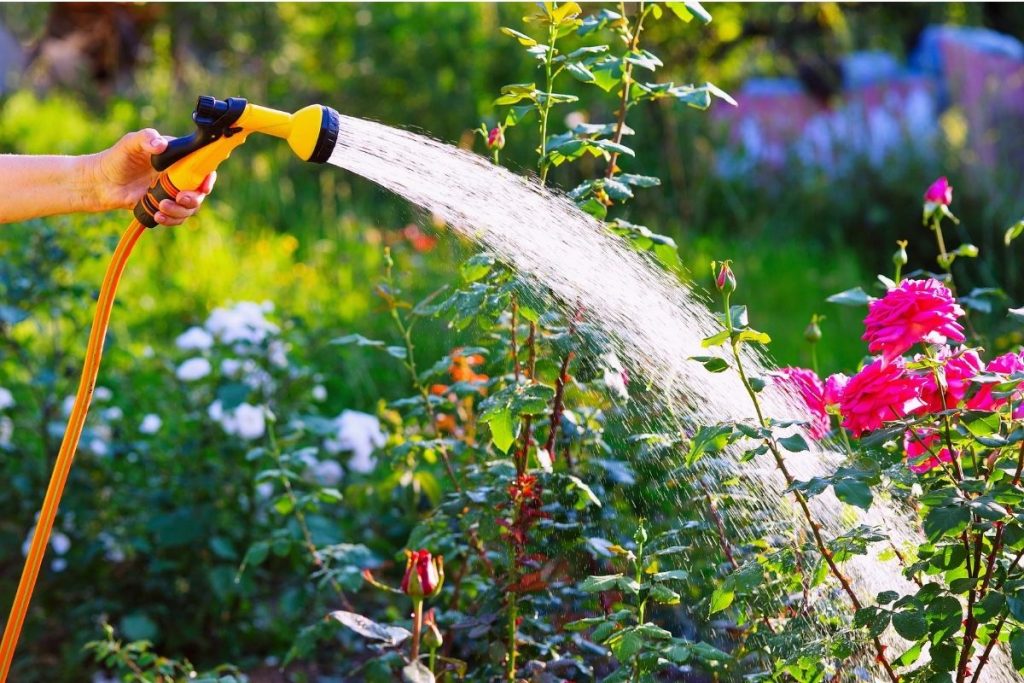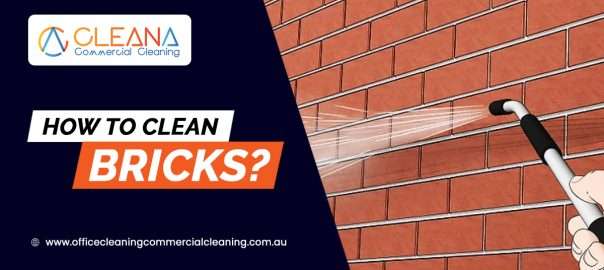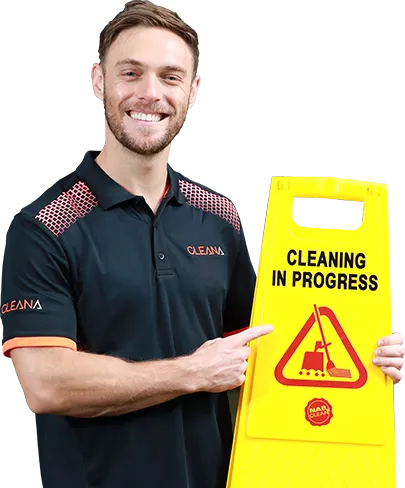Durable brick can withstand a lot of things, but it sadly can’t resist dirt and grime. Without regular cleaning, an exposed brick wall can lose its luster, and make your home look less than its best.
A brick exterior can look fantastic, but regular maintenance is necessary to avoid serious staining. However, cleaning a brick wall can seem like an intimidating job, and few of us relish the thought of all that cleaning.
But cleaning bricks don’t have to be difficult, especially if you don’t allow stains to build up. Use our commercial cleaners guide to find the best way to clean bricks, and to keep your wall looking better for longer.
How To Clean Bricks On Exterior Walls
Choose The Right Cleaning Solution For Your Brick
To choose the right solution for cleaning your bricks, you must consider both the bricks themselves and how much cleaning they need.
Bricks vary in absorption rate, surface, and finish, and therefore not every solution will be suited. If you’re trying to clean something other than the commercial house bricks, you should head to your local hardware store for advice.
Although there are commercial brick cleaning solutions available, it’s easy to mix up your own. Consider trying:
- Dish soap and warm water. This simple mixture can be used for basic cleaning and small stains. It’s also safe for children to use. If you clean your wall regularly or live in a dry area, a simple soap mixture could be all you need.
- Vinegar and water. An equal mixture of vinegar and water is an effective way to remove staining from brickwork. Use a spray bottle for easy application. Vinegar and water is safe for use around children.
- Bleach and water. If you’re struggling with moss, mildew, or mold, bleach is an incredibly effective solution. Start by adding one tablespoon of bleach to a gallon of warm water, and apply using a sponge. If the solution is too weak, add more bleach, but don’t exceed a cup measurement.
- Acidic cleaner. An acidic cleaner solution should only be used to remove tough stains, such as rust and excess mortar. If you choose to use an acidic cleaning solution, be sure to wear full protective gear, including safety glasses and a respirator. Read the instructions closely before starting.
Wait For The Right Weather Conditions
Once you’ve chosen your solution, it’s tempting to get started as soon as possible. But rushing to clean in the wrong weather will just leave you with more work to do in the future.
It’s best to wait for a day that’s warm but not hot, with some cloud cover. If it’s too hot, or too sunny, then the brick will dry too quickly. This can leave staining and discolouration — which you’ll then have to clean again.
Cover The Area Surrounding The Brick
Even a mild brick cleaning solution, such as water and vinegar, can cause damage to other surfaces in the area.
This is particularly true if you have plant life or grass. Use a tarp or plastic sheeting to cover the nearby areas, and protect them from any runoff.
Solutions designed for brick can harm materials such as glass, wood, and metal. Cover these carefully.
Wear Protective Gear

As well as protecting surrounding surfaces, you need to protect yourself before you start cleaning. Make sure to wear rubber gloves and safety glasses.
If you’re working with dangerous chemicals such as acid, you should wear a respirator.
Keep your clothes covered as well, or wear something you don’t mind staining.
With these precautions in place, you’re ready to start cleaning.
Wet The Brick With A Garden Hose
Begin by wetting the brick with a hose. It’s important that the brick is fully saturated before you apply your cleaning solution.
Dry brick will quickly absorb the soap or cleaning solution, which can lead to staining, discolouration, and even cracking.

This process will also help to remove any excess dirt and grime from the surface of the brick. Although spraying with a hose is unlikely to remove any stains, it may be all you need to clear surface-level dirt.
A pressure washer can be used instead of a hose. If you’re wary of using chemicals, a pressure washer can effectively clean brickwork with light staining.
However, be careful with the power settings. The pressure should be around 3000 PSI, or you risk damaging the brick.
Apply The Cleaning Solution
With the brick wet, it’s time to apply your cleaning solution. Apply using a sponge or a hard-bristled brush. Avoid using a wire brush, as this can leave rust stains.
As you clean, make sure to keep the brick damp, and reapply water to any areas that are drying out. Not only will this keep the brick from absorbing cleaner, but it can also prevent streaking.
Rinse Thoroughly
Finish with a thorough rinse down, moving from the top of the brick to the bottom. Use a hose or a pressure washer. Rinse until the bricks are clear of any cleaning residue, and leave them to dry.
How To Clean Bricks On Interior Walls?
Keeping bricks clean on an interior wall can be slightly more difficult, as you want to avoid using a hose or pressure washer.
However, they’re also less likely to suffer from mold and staining. Interior brick walls can be cleaned using a soap and water solution, or a vinegar and water solution.
Wait for a warm day, and begin by protecting the surrounding areas. Wipe the brick clean with a dry cloth, and then use a damp cloth to wet the brick.
Use a hard bristled brush (not wire) to scrub the walls with your solution. Rinse down with a damp cloth, and leave to dry.
Conclusion
Brick cleaning doesn’t have to be difficult, and even tricky stains can be removed without the help of a professional. Be careful to keep the brick wet, apply evenly, and use the right solution for your needs.
Clean regularly, to keep your brick walls looking as good as new.


